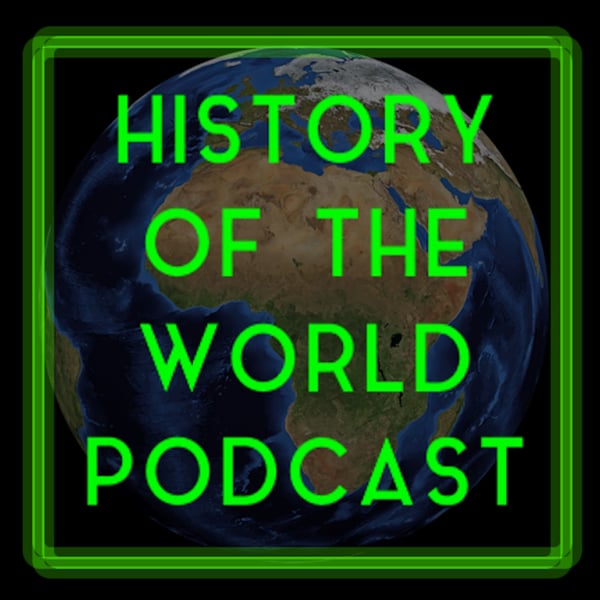Vol 4 Ep 73 - BATTLE - The Battle of Ain Jalut ( 1260 )
History of the World podcast
Chris Hasler
4.8 • 971 Ratings
🗓️ 24 April 2024
⏱️ 39 minutes
🧾️ Download transcript
Summary
1260 - The Mongol expansion had reached the Middle East, and their power enabled them to crush the established states up to the Holy Land. The Holy Land was being claimed by an Egyptian Dynasty with Turkic origins, and as such, would also have mastery of horsemanship and archery. Would the Mongols meet their match?
--- Send in a voice message: https://podcasters.spotify.com/pod/show/historyoftheworldpodcast/messageTranscript
Click on a timestamp to play from that location
| 0:00.0 | The History of the World Podcast, written and presented by Chris Hasler. Volume 4, The Medieval World. |
| 0:25.0 | Episode 73, the Battle of Aemjalute. Shalut. Now, Myyanne Howard is a natural spring in Northern Israel just a couple of miles north of its border with the Palestinian West Bank. Its Arabic |
| 1:06.6 | name is Ainsjalut and this particular translation provides its name to the battle that is the subject of today's episode. |
| 1:16.5 | It is within the fertile crescent, an agriculturally favourable stretch of land in the Middle East. Some of the a Told Crescent from around 12,000 years ago. Settlements and domesticated crops and animals |
| 1:38.4 | meant growing populations. Settlements growing in population and size brought about trade and competition between the settlements. |
| 1:49.1 | Competition brought about technological advancement and conflict and with conflict came warfare. |
| 1:57.6 | All of these things put pressure on settlements to produce, whether it be materials and surplus surprise for trade or weapons and constructed defences. |
| 2:10.0 | Members of settlement populations became specialist farmers or traders or artisans or soldiers or architects or anything else that was required by the growing town or city. |
| 2:25.0 | One of the earliest cities that became a notable power in the Levant was Damascus, |
| 2:31.0 | the current capital of Syria, less than a hundred miles northwest of Mayan |
| 2:37.7 | Khahud. The Sumerians, who were one of the earliest recorded societies residing on the Iraqi coastline of the Persian Gulf, |
| 2:49.0 | recognized a people called the Ammarites, occupied lands of the Levant from the third millennium |
| 2:57.4 | B.C. E. As time advanced the most powerful settlements became kingdoms, and the most powerful kingdoms became |
| 3:07.7 | empires. |
| 3:10.7 | The lands of today's battle episode were within an area known as Canaan, very much central |
| 3:18.3 | to the stories of the Hebrew Bible, and the lands of Canaan would be strongly influenced by the New Kingdom of Egypt |
| 3:27.8 | going into the second half of the second millennium B.C. After the decline of the new kingdom, it is believed that Israel |
| 3:37.4 | emerged in these lands as referenced in the |
| 3:45.0 | first millennium, the mighty Neo-Assyrian Empire conquered the lands of Israel, |
| 3:49.0 | but the region didn't lose its Jewish identity. It still didn't lose its identity |
| 3:56.1 | when the Neo-Babylonians conquered the Neo-Assyrians and tried to exile the Jews |
| 4:01.9 | from Jerusalem to Babylon. |
... |
Please login to see the full transcript.
Disclaimer: The podcast and artwork embedded on this page are from Chris Hasler, and are the property of its owner and not affiliated with or endorsed by Tapesearch.
Generated transcripts are the property of Chris Hasler and are distributed freely under the Fair Use doctrine. Transcripts generated by Tapesearch are not guaranteed to be accurate.
Copyright © Tapesearch 2025.

